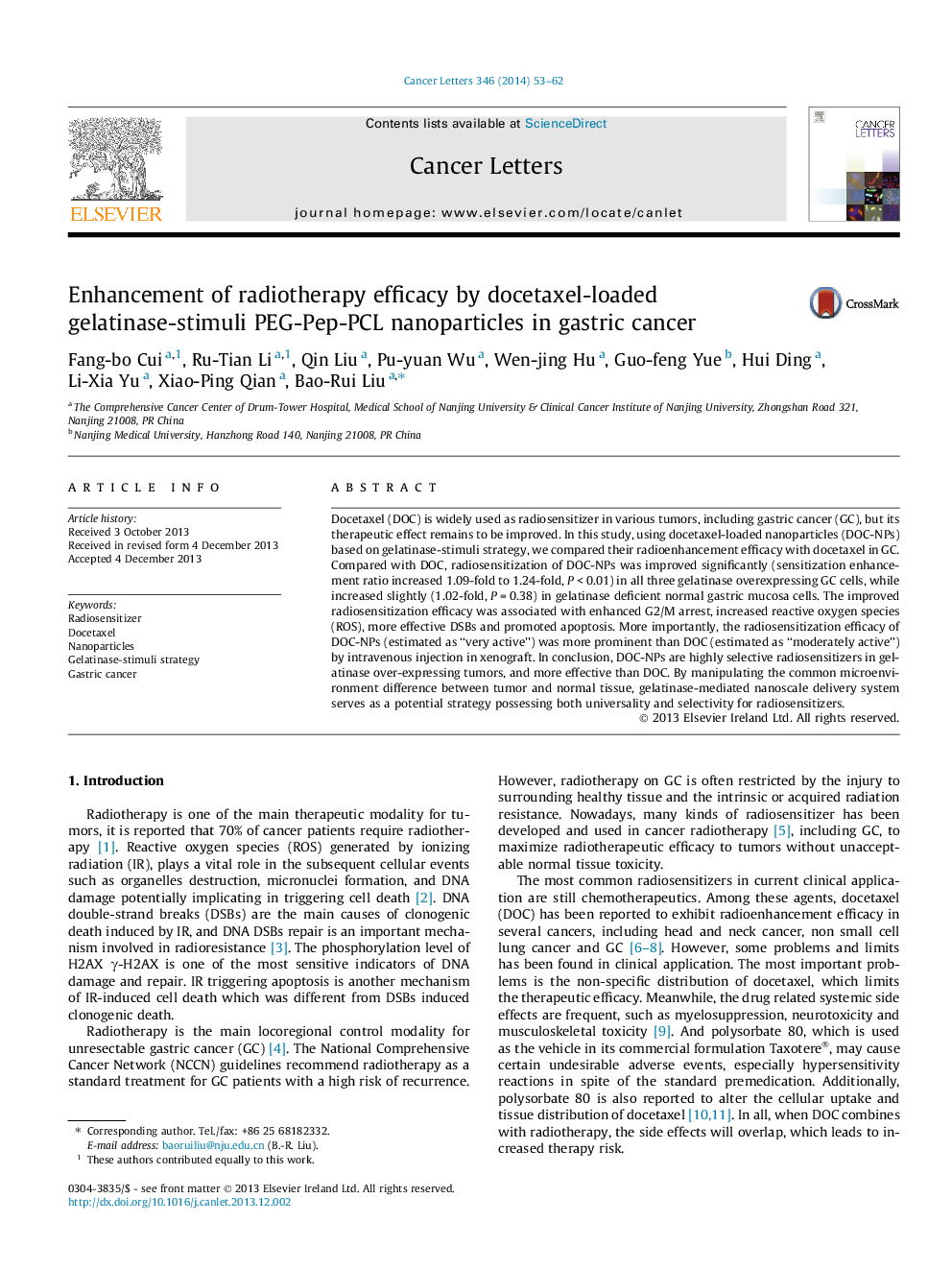| Article ID | Journal | Published Year | Pages | File Type |
|---|---|---|---|---|
| 10902438 | Cancer Letters | 2014 | 10 Pages |
Abstract
Docetaxel (DOC) is widely used as radiosensitizer in various tumors, including gastric cancer (GC), but its therapeutic effect remains to be improved. In this study, using docetaxel-loaded nanoparticles (DOC-NPs) based on gelatinase-stimuli strategy, we compared their radioenhancement efficacy with docetaxel in GC. Compared with DOC, radiosensitization of DOC-NPs was improved significantly (sensitization enhancement ratio increased 1.09-fold to 1.24-fold, PÂ <Â 0.01) in all three gelatinase overexpressing GC cells, while increased slightly (1.02-fold, PÂ =Â 0.38) in gelatinase deficient normal gastric mucosa cells. The improved radiosensitization efficacy was associated with enhanced G2/M arrest, increased reactive oxygen species (ROS), more effective DSBs and promoted apoptosis. More importantly, the radiosensitization efficacy of DOC-NPs (estimated as ''very active'') was more prominent than DOC (estimated as ''moderately active'') by intravenous injection in xenograft. In conclusion, DOC-NPs are highly selective radiosensitizers in gelatinase over-expressing tumors, and more effective than DOC. By manipulating the common microenvironment difference between tumor and normal tissue, gelatinase-mediated nanoscale delivery system serves as a potential strategy possessing both universality and selectivity for radiosensitizers.
Related Topics
Life Sciences
Biochemistry, Genetics and Molecular Biology
Cancer Research
Authors
Fang-bo Cui, Ru-Tian Li, Qin Liu, Pu-yuan Wu, Wen-jing Hu, Guo-feng Yue, Hui Ding, Li-Xia Yu, Xiao-Ping Qian, Bao-Rui Liu,
